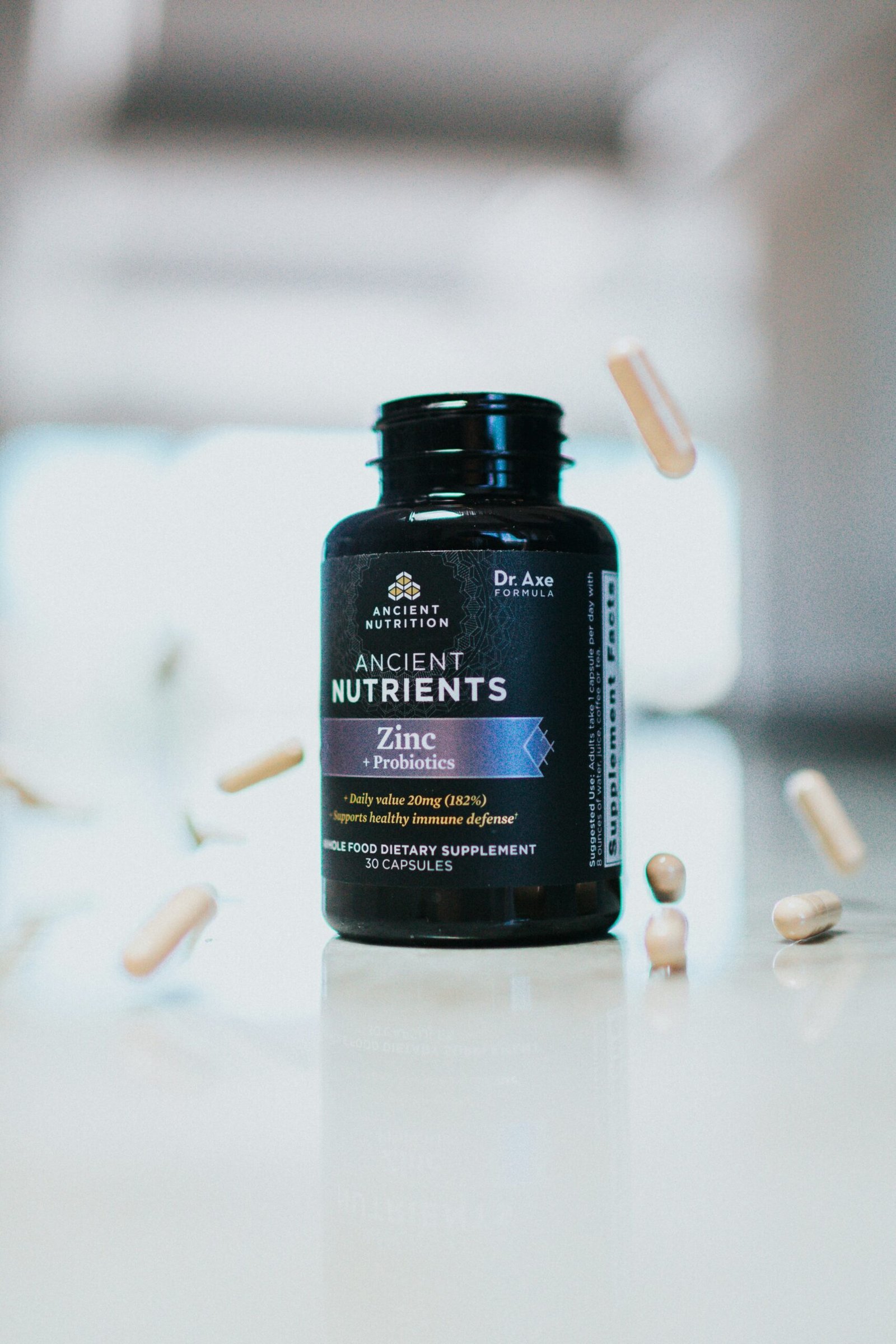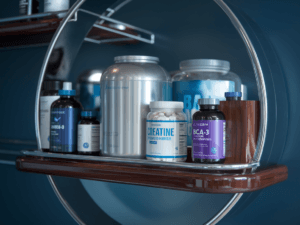Introduction: The Importance of Pre-Race Nutrition
Hello dear readers,
Before we dive into today’s content, I want to share something important with you. Although I’m passionate about the topic we’re going to discuss and have spent a lot of time researching and learning about it, it’s essential to clarify that I am not a professional in the field.
What you will read next are insights and information that I have gathered based on my personal experience and self-taught studies. My intention is to start a conversation, share what I’ve discovered, and maybe help someone who is on the same journey of discovery. If you are an expert on the subject, your comments and guidance are very welcome, as we are all here to learn and grow together.
Now, let’s get to the good stuff!
Engaging in long runs, marathons, or endurance competitions demands more than just physical training; it requires strategic nutrition to optimize performance. What you eat before a run can significantly impact your energy levels, stamina, and recovery. Proper pre-race nutrition ensures that your body is adequately fueled, helping to prevent fatigue and enhance overall performance.
Carbohydrates play a pivotal role in pre-race nutrition. As the primary source of energy for endurance activities, they are stored in the muscles and liver as glycogen. Consuming an appropriate amount of carbohydrates before a long run can help maintain high energy levels and delay the onset of fatigue. Foods like whole grains, fruits, and vegetables are excellent sources of complex carbohydrates that provide sustained energy.
Proteins are equally important, albeit for different reasons. They aid in muscle repair and recovery, which is crucial after intense training sessions. Including a moderate amount of protein in your pre-race meal can help preserve muscle mass and promote quicker recovery. Lean meats, dairy products, and plant-based protein sources like beans and nuts are ideal options.
Fats, while often overlooked, are also essential in a balanced pre-race diet. Healthy fats provide a concentrated source of energy and support overall cellular function. Incorporating small amounts of healthy fats from sources like avocados, nuts, and seeds can contribute to sustained energy levels without causing digestive discomfort.
In conclusion, a well-rounded pre-race meal that combines carbohydrates, proteins, and fats can significantly enhance your performance during long runs, marathons, or endurance competitions. By understanding the importance of these nutrients and making informed dietary choices, you can ensure that your body is well-prepared to tackle the challenges of endurance activities.
1. Oatmeal with Fruits and Nuts
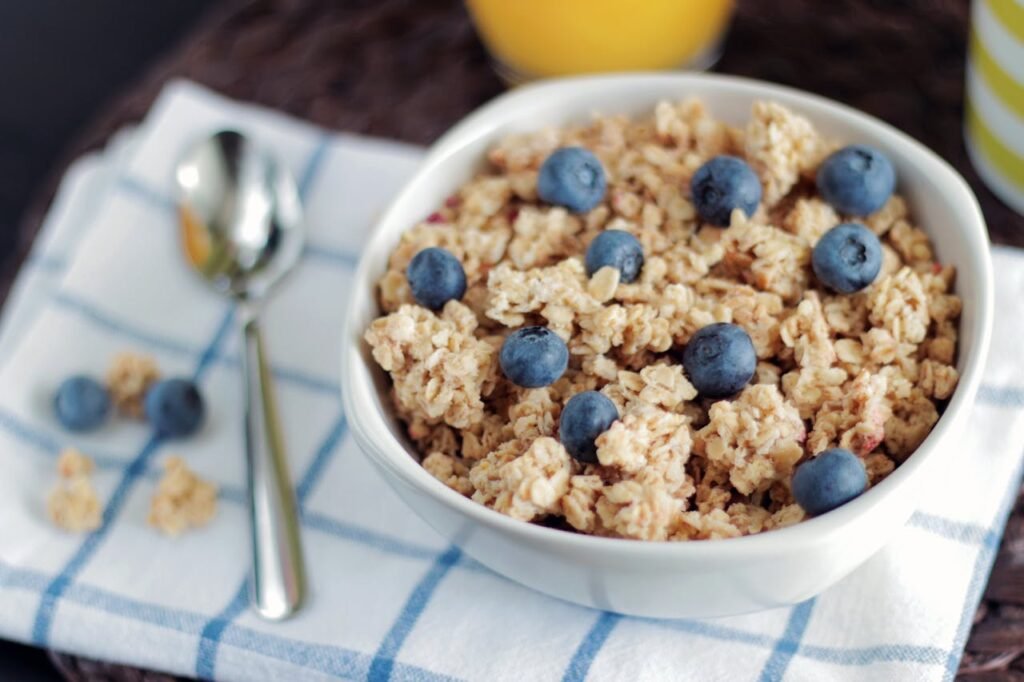
Oatmeal stands out as one of the best options to eat before long runs, thanks to its rich content of complex carbohydrates. These carbohydrates are broken down slowly by the body, providing a sustained release of energy essential for enduring long-distance activities such as marathons or other endurance competitions. This slow digestion process ensures that your energy levels remain stable, preventing any sudden spikes or crashes that could hinder your performance.
Incorporating fruits into your oatmeal not only enhances the flavor but also adds natural sugars and essential vitamins. Fruits like bananas, berries, and apples are particularly beneficial. Bananas are rich in potassium, which helps maintain electrolyte balance; berries are packed with antioxidants that combat oxidative stress; and apples provide a good source of fiber and vitamin C. These naturally occurring sugars provide a quick energy boost, complementing the steady energy release from the oatmeal.
Nuts are another excellent addition to your pre-race oatmeal. They contribute healthy fats and proteins that are crucial for muscle repair and sustained energy. Almonds, walnuts, and chia seeds are popular choices. Almonds offer a great source of vitamin E and magnesium, which can help reduce muscle soreness. Walnuts are rich in omega-3 fatty acids, promoting heart health and reducing inflammation. Chia seeds, on the other hand, are a powerhouse of fiber, protein, and omega-3s, making them an ideal addition for anyone looking to enhance their endurance.
The best time to consume oatmeal with fruits and nuts is about 2-3 hours before your race or training session. This timing ensures that your body has sufficient time to digest the meal and convert it into usable energy, without causing any gastrointestinal discomfort during your run. By integrating this nutrient-dense meal into your pre-race routine, you set a solid foundation for optimal performance and sustained energy throughout your endurance activity.
2.Whole Grain Bread with Peanut Butter and Banana
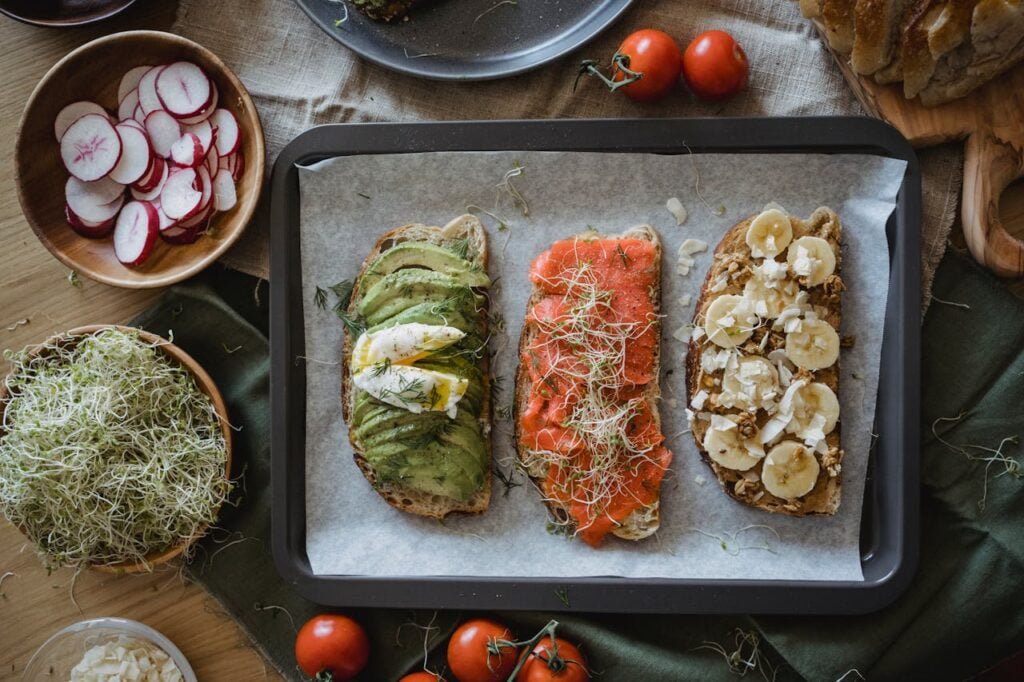
When preparing for a long run, marathon, or endurance competition, it’s crucial to fuel your body with the right nutrients to maximize performance. Whole grain bread, peanut butter, and bananas form an excellent pre-run meal, offering a balanced mix of complex carbohydrates, protein, and essential minerals.
Whole grain bread serves as a valuable source of complex carbohydrates, which are vital for sustained energy release. Unlike simple sugars, complex carbs break down slowly, providing a steady stream of glucose to fuel your muscles over extended periods. This gradual energy release helps in maintaining stable blood sugar levels, preventing the dreaded energy crashes mid-run.
Peanut butter adds a layer of nutritional richness to this meal. It is packed with protein, which supports muscle repair and growth, and healthy fats, which offer a concentrated energy source. Additionally, the creamy texture of peanut butter enhances the palatability of the meal, making it a delightful pre-run option.
Bananas are the third key element of this combination, renowned for their high potassium content. Potassium is an electrolyte that plays a critical role in muscle function and preventing cramps. During prolonged physical activity, the risk of electrolyte imbalance increases, and consuming bananas can help mitigate this risk, ensuring smoother muscle contractions and reducing the likelihood of cramps.
For optimal digestion and performance, it is advisable to consume this meal approximately two to three hours before your run. This timing allows your body sufficient time to digest and absorb the nutrients without causing any gastrointestinal discomfort. Portion control is also essential; a moderate-sized sandwich with one to two tablespoons of peanut butter and a medium banana should suffice for most runners. Adjustments can be made based on personal dietary needs and the intensity of the activity.
Incorporating this well-balanced meal into your pre-run routine can significantly enhance endurance, providing the necessary fuel to tackle long distances with vigor and resilience.
3.Greek Yogurt with Honey and Berries
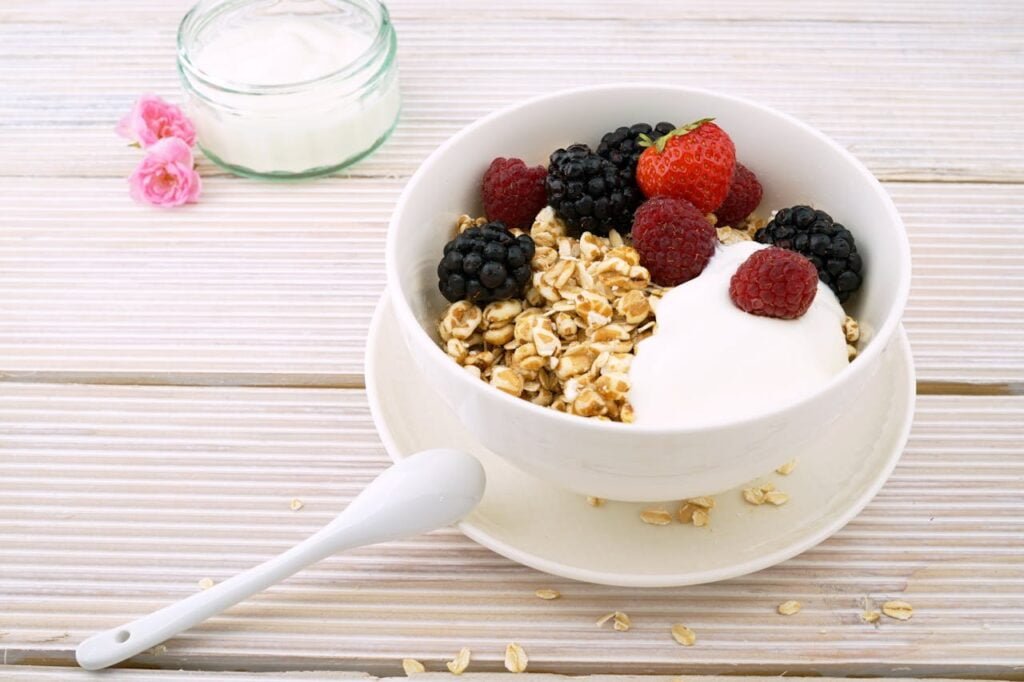
Greek yogurt is a nutrient-dense option that stands out for its high protein content and probiotics, making it an excellent choice for athletes preparing for long runs, marathons, or endurance competitions. The protein in Greek yogurt is essential for muscle repair and recovery, which is crucial when you are engaging in extensive physical activity. Additionally, the probiotics in Greek yogurt support a healthy digestive system, ensuring that you can efficiently absorb and utilize the nutrients from your pre-run meal.
Adding honey to Greek yogurt not only enhances its taste but also provides a quick source of natural energy. Honey is rich in easily digestible sugars, primarily fructose and glucose, which can rapidly boost your glycogen stores. This is particularly beneficial before a long run, as it helps maintain your energy levels and prevents early fatigue.
Berries, such as blueberries, strawberries, and raspberries, are a perfect complement to this pre-run meal. They are packed with antioxidants and vitamins, which help to reduce oxidative stress and inflammation in the body. These properties are vital for endurance athletes, as they help to maintain overall health and improve recovery times. Berries also add a touch of sweetness and a variety of textures to the yogurt, making it a delightful and nutritious option.
To prepare this meal, simply take a serving of Greek yogurt and mix in a tablespoon of honey. Top it with a generous handful of mixed berries. This combination can be prepared in advance and stored in the refrigerator, making it convenient for those early morning runs. Ideally, consume this meal about 60 to 90 minutes before the start of your race or training session. This timing allows your body to digest the food and convert it into usable energy, ensuring optimal performance during your run.
4.Hydration Tips: Staying Properly Hydrated
Proper hydration is a critical component of any successful long run, marathon, or endurance competition. Ensuring that your body is adequately hydrated before, during, and after your run can significantly impact your performance and help prevent dehydration. Both water and electrolytes play vital roles in maintaining optimal body function, making it essential to plan your hydration strategy carefully.
Before embarking on a long run, it is crucial to start hydrating well in advance. Aim to drink at least 16-20 ounces of water two to three hours before your run. This initial hydration helps top off your body’s water reserves, ensuring that you begin your run in a well-hydrated state. Additionally, consuming a small amount of water (approximately 8 ounces) 15-30 minutes before starting can be beneficial.
During the run, maintaining hydration is key. It is recommended to drink about 5-10 ounces of water every 15-20 minutes, depending on factors such as temperature, humidity, and personal sweat rate. For runs extending beyond an hour, incorporating sports drinks that provide electrolytes, such as sodium, potassium, and magnesium, is advisable. These electrolytes help replenish the minerals lost through sweat and support muscle function, reducing the risk of cramps and fatigue.
Natural electrolyte sources like coconut water can be an excellent alternative to commercial sports drinks. Coconut water offers a balanced mix of electrolytes and hydration while being free of artificial additives. For those seeking variety, other natural options include diluted fruit juices or homemade electrolyte solutions, which can be tailored to individual preferences and dietary needs.
After completing your run, rehydration is essential for recovery. Consuming 16-24 ounces of fluid for every pound lost during the run can help restore hydration levels. Combining water with a small snack containing carbohydrates and protein can further aid in muscle recovery and replenish glycogen stores.
By paying attention to your hydration needs and choosing appropriate fluids, you can enhance your performance and ensure a more enjoyable and successful running experience.
5.Foods to Avoid Before a Race

When preparing for a long run, marathon, or endurance competition, it is crucial to be mindful of the foods and drinks you consume beforehand. Certain food choices can lead to digestive issues, dehydration, and energy crashes, undermining your performance and comfort during the race.
Firstly, high-fiber foods such as beans, lentils, and certain vegetables should be avoided. While fiber is essential for a balanced diet, consuming it before a race can result in gastrointestinal distress, including bloating, gas, and an urgent need for restroom breaks. Instead, opt for low-fiber options like bananas, white bread, or rice, which provide the necessary energy without upsetting your digestive system.
Fatty foods are another category to steer clear of before running. Foods like fried items, cheese, and heavy sauces can be slow to digest, leading to a feeling of heaviness and potential nausea. These foods can also cause a delay in the absorption of carbohydrates, depriving your muscles of immediate energy. Lean proteins and easily digestible carbohydrates, such as chicken breast or a plain bagel, are much better choices for pre-race fuel.
Caffeine, commonly found in coffee, tea, and energy drinks, can be a double-edged sword. While it may provide a temporary energy boost, it can also lead to dehydration and increased anxiety, especially if consumed in large amounts. If you rely on caffeine, try to limit your intake and ensure you stay well-hydrated. Herbal teas or water infused with a splash of lemon can be good alternatives.
By avoiding high-fiber foods, fatty foods, and excessive caffeine, you can reduce the risk of digestive problems and energy crashes. Instead, focus on easily digestible carbohydrates, lean proteins, and moderate caffeine intake to ensure your body is well-prepared for the demands of a long run or endurance competition.
6.Personalizing Your Pre-Race Meal Plan
When it comes to optimizing performance for long runs, marathons, or endurance competitions, personalizing your pre-race meal plan is crucial. Each runner’s body responds differently to various foods, making it essential to tailor your nutrition to your individual needs, preferences, and tolerance levels. The key to finding the 3 best options of what to eat before long runs lies in understanding how your body reacts to specific foods and nutrients.
One effective strategy is to keep a detailed food diary. Documenting what you eat before each training session, along with notes on how you felt during and after the run, can provide valuable insights. This practice helps in identifying patterns and pinpointing which foods enhance your performance and which might cause discomfort or sluggishness. Experimenting with different foods during training runs is another pivotal step. For instance, some runners may find that a combination of carbohydrates and proteins works best, while others may benefit from a more carbohydrate-heavy pre-run meal.
During this experimentation phase, it’s essential to consider the timing of your meals as well. Eating too close to a run can lead to gastrointestinal distress, while consuming your meal too far in advance might leave you feeling depleted. Generally, it is recommended to eat a balanced meal 2-3 hours before a long run and a smaller snack 30-60 minutes prior. This approach allows ample time for digestion while ensuring sustained energy levels throughout your run.
The role of trial and error in optimizing performance cannot be overstated. By gradually refining your pre-race nutrition through systematic testing and close observation, you can discover what to eat before a run that best supports your training and competition goals. Remember, what eat before training is a highly individualized aspect of endurance sports, and what works for one runner might not work for another. Therefore, patience and persistence in finding your ideal pre-race meal plan are essential for achieving peak performance.
Conclusion: Consult with your Nutritionist
While understanding the 3 best options of what to eat before long runs is essential, personalized nutrition plans can significantly enhance your performance and overall well-being. Consulting with a nutritionist or dietitian ensures that your dietary choices align with your individual health needs, training intensity, and specific goals. These professionals possess the expertise to tailor your nutrition plan, addressing unique requirements such as food allergies, intolerances, or medical conditions.
Professional guidance can help you determine the optimal balance of carbohydrates, proteins, and fats necessary for your training regimen. Additionally, a nutritionist can provide valuable insights into timing your meals and snacks effectively, ensuring that you are adequately fueled for your runs without experiencing digestive discomfort. This personalized approach is particularly vital for endurance athletes who need to maintain energy levels and prevent fatigue over extended periods.
Moreover, collaborating with a nutrition expert can aid in identifying the most beneficial supplements, hydration strategies, and recovery foods, optimizing your body’s ability to perform and recover. By working closely with a specialist, you can avoid common pitfalls such as under-fueling, over-reliance on specific food groups, or neglecting essential nutrients.
In conclusion, while general recommendations on what to eat before a run can provide a solid foundation, individualized nutrition advice from a qualified professional ensures that you are meeting your body’s unique demands. This tailored approach not only enhances your athletic performance but also supports your long-term health, making it an invaluable investment for any serious runner or endurance athlete.






